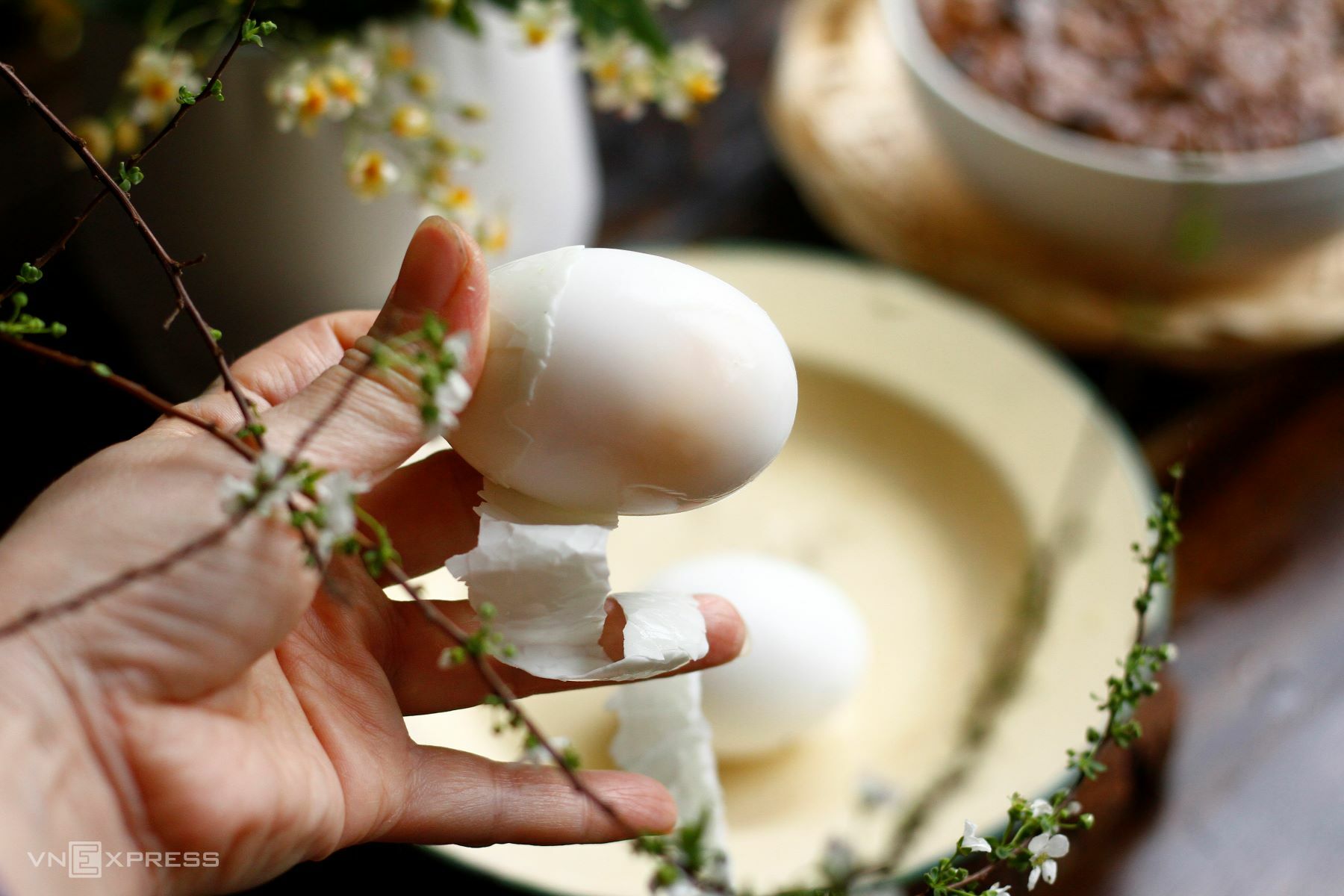Traditionally, cooks rarely covered the pot while boiling eggs, partly to easily monitor the flame and partly to prevent the eggs from cracking due to excessive heat.
In Vietnamese spiritual beliefs, especially during Tet (Lunar New Year) or death anniversaries, boiled eggs are often chosen as offerings, and a crucial requirement is that they remain whole. Scholar Nguyen Van Huyen, in his book "Vietnamese Civilization", mentioned that Vietnamese offerings emphasize wholeness and roundness, symbolizing fullness and prosperity.
Professor Tran Ngoc Them, in his book "Vietnamese Folk Beliefs", also stated that the image of a whole egg signifies origin and completeness, suitable for expressing wishes for abundance and sustainability.
Therefore, keeping the eggs from cracking during boiling is a mandatory requirement, imbued with cultural beliefs.
 |
Illustrative photo: Bui Thuy |
However, in modern life, many people cover the pot to bring the water to a boil faster, saving time and fuel. Achieving perfectly cooked, easy-to-peel eggs without cracking is a bit of a science.
Eggs have a unique structure. The egg white consists primarily of water and protein (albumin), making it easy to solidify when cooked and to whip into a foam. The yolk is rich in fat, particularly lecithin, a natural emulsifier that helps bind and create a smooth texture in dishes. When heated, proteins gradually transition from a liquid to a solid state. This process occurs at different temperatures. The egg white begins to solidify at around 62-65°C, the yolk at around 68-70°C, and by 80-85°C, almost the entire egg has solidified.
Covering the pot has two main effects. First, a closed pot helps the water reach its boiling point of 100°C faster by reducing heat loss, which translates to fuel and time savings. Second, the accumulated steam creates slight pressure inside the pot, maintaining a more stable temperature. Scientifically, covering the pot helps transfer heat to the eggs more quickly.
However, a common consequence of rapid temperature increase is that the shell can crack if the eggs are taken directly from the refrigerator. The significant temperature difference between the cold egg and the boiling water creates internal pressure, causing the shell to crack. To avoid this while still covering the pot, let the eggs come to room temperature before boiling, or place them in the pot with cold water and then heat gradually.
Safety and nutritional value are important considerations.
Some worry that covering the pot while boiling eggs might diminish their nutritional value. Nutrient loss in eggs is mainly due to overcooking, which reduces some B vitamins. Covering the pot doesn't directly affect protein and mineral content, but it does influence the cooking speed. If the boiling time is controlled and the eggs are cooked just right, the nutritional value is preserved.
Conversely, overcooking, especially in a covered pot, can create a greenish-gray ring around the yolk. This is a reaction between iron in the yolk and sulfur in the white, forming iron sulfide. While not harmful, this ring makes the egg less appealing and the yolk dry and less flavorful. Consuming a lot of overcooked eggs can cause indigestion.
The United States Department of Agriculture (USDA) recommends that eggs be cooked to an internal temperature of at least 71°C to ensure food safety, both to eliminate bacteria and maintain sensory quality. The World Health Organization (WHO) also affirms that eggs should be thoroughly cooked to prevent Salmonella bacteria, but there's no need to overcook them to the point of altering the color and texture of the yolk.
In Japanese cuisine, onsen eggs (cooked in hot water at about 65-70°C) are typically prepared in a covered pot to maintain a stable temperature for slow cooking. Conversely, in Europe, many chefs recommend leaving the pot uncovered when boiling eggs for breakfast, maintaining a gentle simmer to easily control the timing and achieve the desired soft-boiled consistency. In Vietnam, both methods coexist, reflecting flexibility: when in a hurry, the pot is covered for quicker boiling; when there’s more time, it's left uncovered to control the doneness of the eggs.
A tip from experienced home cooks: After boiling, immediately plunge the eggs into a bowl of cold water. This stops the cooking process, preserves the yolk's appearance, and makes peeling easier.
Whether to cover or uncover the pot when boiling eggs isn't a rigid rule. The key is to choose the method that suits the circumstances and control the timing to achieve perfectly cooked, flavorful, and nutritious eggs.
Bui Thuy












